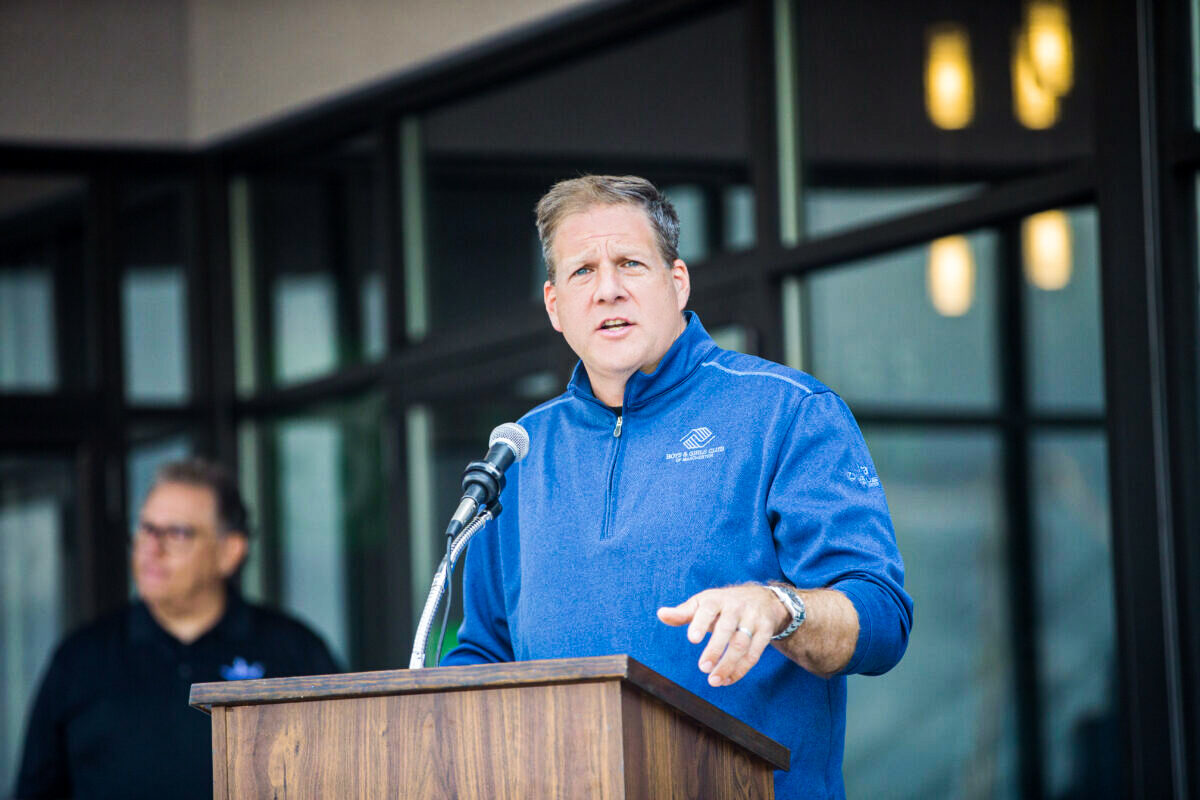
Democrats believe their best hope is to position themselves as the only alternative to Trump
In the coming midterms, Democrats believe their best hope is to position themselves as the only alternative to Trump and his brand of Republicanism, according to political strategists.
Democrat candidates and their supporters, they say, are hoping that the furor around former President Donald Trump’s alleged storing of sensitive documents in Mar-a-Lago, as well as his alleged role in the events of Jan. 6 will not abate even slightly between now and the November midterm elections, and will distract voters from the Democrats’ shortcomings, particularly with regard to the economy.
Even in battleground states where a variety of Republican candidates competed in this week’s primary elections, Democrats are acting as if their best bet is to paint all Republicans as nascent or actual extremists and to capitalize on some voters’ dissatisfaction with the overturning of Roe v. Wade, the strategists argue.
President Joe Biden and his party have come in for severe criticism for their handling of the economy and for an inflation report credited with bringing about the stock market’s worst day of 2022 on Sept. 13, with the Dow Jones Industrial Average down nearly 1,300 points. Some economists view the highest inflation in four decades as a function of the Biden administration’s expansionist monetary policy, which they argue has led to too much money chasing too few goods. For fiscal year 2022 as a whole, the federal budget deficit is projected to be $1 trillion.
These dismal figures may motivate GOP voters as much as, or more than the court’s decision in Dobbs v. Jackson Women’s Health Organization will drive Democrat turnout, strategists predict.
In this context, Democrats are quick to seize on any potentially bad news for Trump as good news for their embattled party. Indeed, for some Democrats, the ongoing investigation of Trump’s alleged legal and financial violations may help cast the midterms as a referendum not only on the current president and his economic performance, but on Trump and those Republicans who, they claim, fit the same mold. Given the severity of Biden’s problems, Democrats will do their best to exploit charges and allegations against Trump to their fullest political advantage whether or not the attacks have merit, strategists say.
“Every day brings the risk of more bad news about Trump, which splashes mud on every Republican. The Dobbs ruling is known and GOP candidates either get on the right side of the issue or shift to the economy, which is a bigger deal for most voters,” Keith Naughton, a political consultant and the director of Germantown, Maryland-based Silent Majority Strategies, told The Epoch Times.

A Double-Edged Sword?
Mark C. Smith, a professor of political science and Director of the Center for Political Studies at Cedarville University in Ohio, acknowledges Trump’s continuing prominence within the GOP and his popularity with many Republican voters. This has helped make the coming elections, in large part, what some voters in either party would like it to be: a Trump-Biden rematch as much as a spate of House, Senate, and gubernatorial races.
“Unlike other losing presidential candidates, Trump has maintained a strong presence within his party. He is endorsing candidates, raising funds, and holding rallies. This changes the dynamic of the midterm,” Smith told The Epoch Times.
“Interestingly, the Democrats are happy if Trump continues to headline for Republicans. While popular within the GOP, Trump is toxic for independent voters, and he runs poorly with college-educated white voters, as well as suburban women. In light of his recent legal troubles, Democrats are fine with Trump’s expanded role,” Smith said.
But given the severity of the economic problems and other factors, Smith does not believe that the Democrats’ strategy of decrying Trump’s alleged extremism, and that of “Trump-y” candidates in local issues, will succeed.
“If we consider the political climate, this should be a huge election for Republicans. A relatively unpopular president and a struggling economy, in addition to foreign affairs instability, should put the GOP in a strong position,” said Smith.
While the electoral math of midterm contests varies, it is possible to identify a statistical mean when looking at long-term trends, Smith argued.
“On average, the party out of power picks up around 26 House seats, and five or six Senate seats. To the degree this election is normal, it will be good for Republicans and they will take both houses of Congress,” he said.
While turnout in midterm elections is often low compared to presidential elections, Lonny Leitner, vice president of the government affairs firm LS2 Group, which has offices in Iowa and Minnesota, believes that the Mar-a-Lago raid has backfired and that its findings will not dissuade GOP voters.
“I spent a few days out at the Minnesota State Fair, and I can count on one hand how many times someone brought up the fact that they were concerned about the FBI raid, which tells me it is yet another failed attempt by the Democrats to end Trump once and for all. When will they learn?” Leitner told The Epoch Times.
It was far more common for people he encountered at the fair to voice serious concerns over inflation, fuel prices, out-of-control crime, and the crisis at the border with Mexico, Leitner said.

The Case of New Hampshire
To understand the Democrats’ approach, it is useful to look at one state in particular that has been fiercely contested in recent election years, namely New Hampshire, believes Andrew Smith, Director of the University of New Hampshire Survey Center and an expert on elections and electoral methodology.
Smith believes that New Hampshire is not as politically conservative as its reputation and famous license plate motto (“Live Free or Die”) might lead some people to believe.
“New Hampshire’s electorate is divided between Republicans and Democrats. Democrats generally have a little bit of an advantage in presidential elections, but it’s not that big an advantage in midterm elections with a Democrat president,” Smith told The Epoch Times.
“It’s also a state with higher levels of education and income than most states, and it’s a suburban state,” he said, noting a large proportion of its population lives in the suburbs surrounding Boston. “In that sense, it’s similar to other suburban areas of the northeast that lean Democrat. It’s not a Republican state, that’s a myth,” he added.
Generalizations
In the GOP primary elections held in New Hampshire on Sept. 13, Karoline Leavitt won the race for the first congressional district against a field of rivals including Matt Mowers, Gail Huff Brown, and Russell Prescott, with 34 percent of the vote compared to 25 percent, 17 percent, and 10 percent respectively. In the second congressional district race, Robert Burns scored a victory with 33 percent of the vote versus 29 percent for George Hansel, 25 percent for Lily Tang Williams, and smaller numbers for other competitors.
In the Senate primary, former military officer Donald Bolduc, who hopes to unseat Democrat Senator Maggie Hassan in November, barely edged out his GOP rival Chuck Morse, winning 37.1 percent of the vote to Morse’s 35.8 percent.
In the GOP gubernatorial primary, incumbent Chris Sununu easily trounced all his rivals, winning 78 percent of the vote.

The winning candidates come from a wide variety of backgrounds and have diverse views and ideologies. Leavitt is a former assistant press secretary in the Trump administration, Burns is an entrepreneur and former treasurer of a New Hampshire county, while Sununu has a reputation as a moderate Republican who helped secure funding for a cause championed by Democrats, namely state funding for full-day kindergarten.
While some in the media may wish to associate Bolduc with Trump, it is important to remember that he lost New Hampshire’s 2020 Senate primary to Trump-endorsed candidate Corky Messner, Smith said.
In spite of the eclecticism of these candidates and the impossibility of categorizing them all as strictly “Trump-y” figures, Smith argued, Democrats will treat the candidates in New Hampshire and other states as Republicans in the Trump mode in the hope of wooing the roughly 42 percent of voters in the state who register as independents. Smith said that the tactic put to use in New Hampshire is a microcosm of a broad political strategy.
“Democrats are going to use all these candidates’ connection with Trump—whether it’s there or not—as arguments to vote against them. But that’s true across the country. Democrats are running as if Trump is still in office,” he commented.
With the tricky position in which Democrats find themselves amid so much bad economic news, they place their hopes in controversies around a figure who remains powerful and influential within the GOP.
“All the Mar-a-Lago stuff, they’re praying that will go on until after the midterm elections, because they’re running at a moment when the president is not very popular, and that’s a difficult place to be, as we saw in 2010 and 2014,” Smith continued.
In the New Hampshire races in November 2010, Republican candidates won both the congressional districts contested in this week’s primaries, though they did not win the governorship, Smith noted. Looking at the 2010 midterm elections nationally, Republicans won a majority in the House of Representatives, which they held onto in 2014 in addition to winning majority control of the Senate.

The ‘Extremism’ Charge
Since the spring, when predictions widely favored the GOP in the coming midterms, Democrats have found more opportunities to try to paint Trump and the GOP more broadly as extremist and will rely heavily on this political strategy all the way through the elections, believes David Bateman, a professor of government at Cornell University.***
***According to his own words and published books and articles, Bateman leaves hard left. (Pro-abortion,anti-conservative values, etc) –TPR
This strategy does not come at the expense of, but rather goes hand in hand with, a strong emphasis on the Dobbs ruling and other issues of concern to Democrat voters at the local level, he argued. To a certain extent, voters will decide in accordance with the narratives crafted by the party leadership as Democrat spokespeople try to link congressional and gubernatorial hopefuls to the 45th president.
“Elections are never about one thing, whether that is a referendum on presidential leadership, national economic or other issues, or the local performance and responsiveness of the incumbent. And voters make choices not only on the basis of their priorities, but on the basis of the choices and narratives presented to them by parties. Democrats probably want voters to make a choice on the basis of local issues—which tend to favor incumbents—and then on the extremism of the GOP, as showcased by Trump but as embodied locally by GOP candidates,” Bateman told The Epoch Times.
Though predictions about the likely outcome of the midterms have swung since the spring and do not monochromatically favor GOP candidates as much as before, Democrats still play to what they see as their strengths.
“I expect Democrats’ basic strategy remains the same: have their congressional candidates highlight how they have delivered locally for their districts as well as the extremism of their GOP rivals, while the larger party apparatus and the president emphasize GOP extremism nationally. The abortion decision has helped Democrats a lot, as has the continued attention to Trump,” Bateman said.
The Epoch Times has reached out to the DNC for comment.

